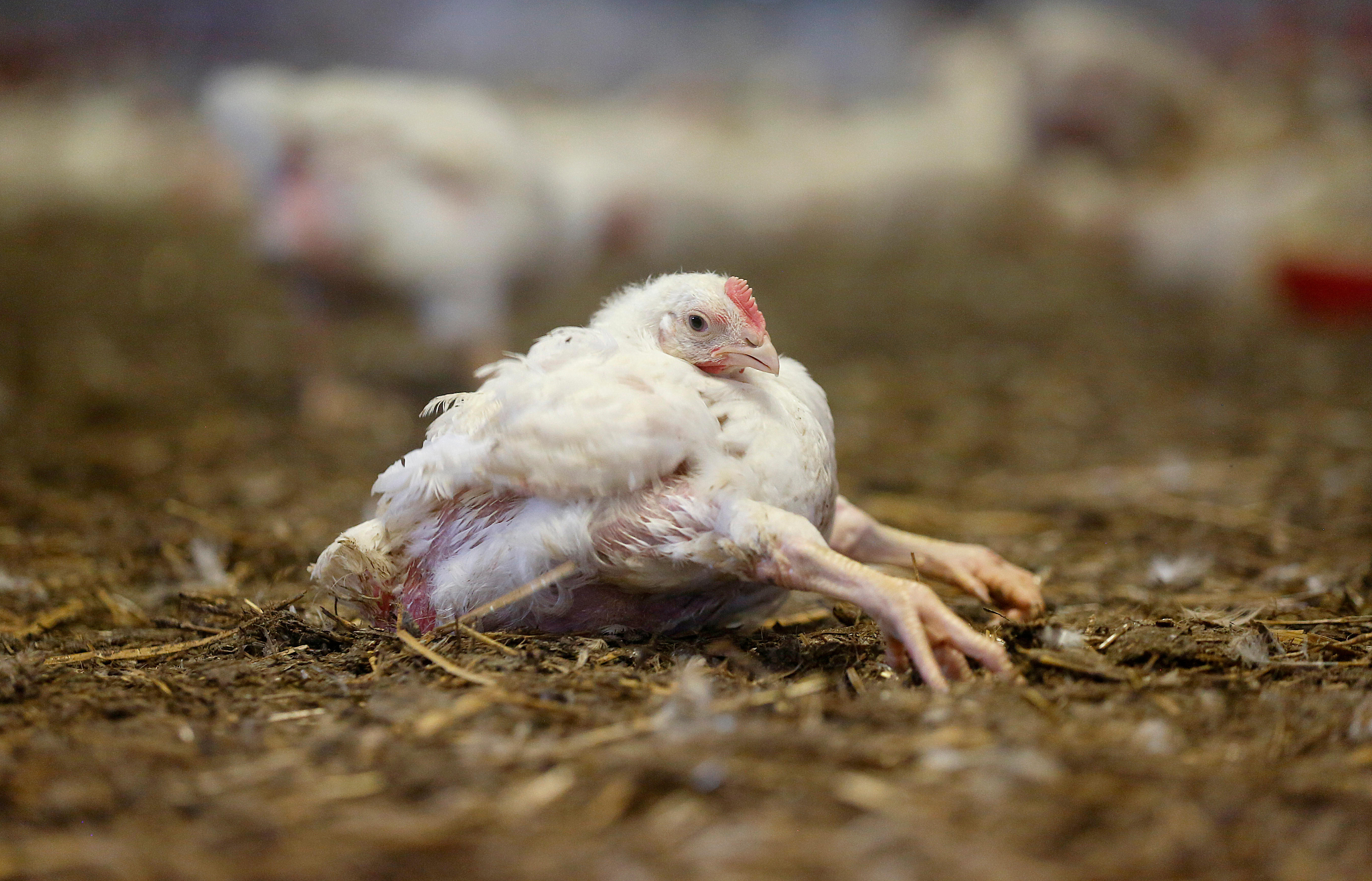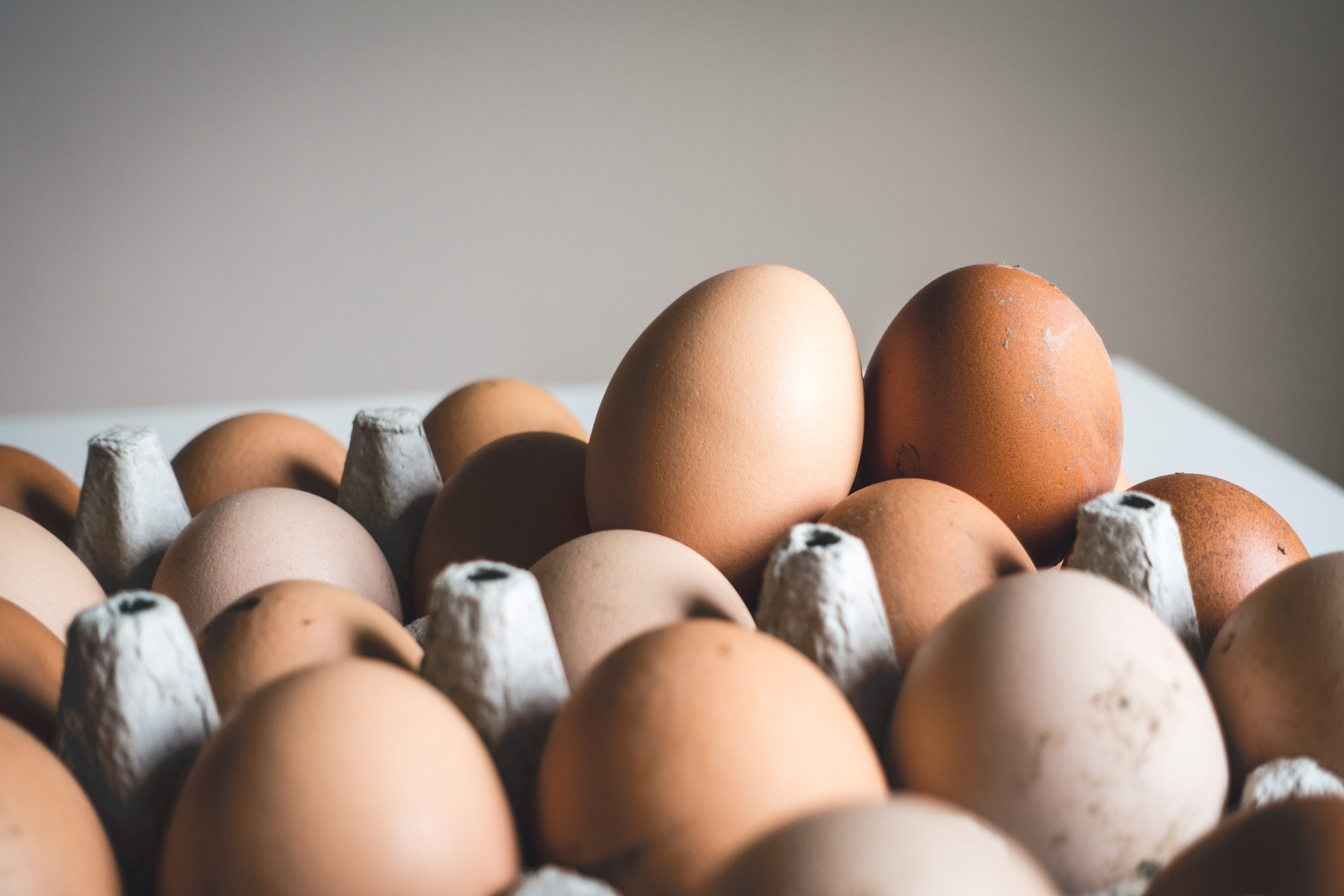




Chickens raised for meat have ballooned in size in recent decades, but what's causing the change?

Chickens raised for meat grow larger and more quickly than they used to a few decades ago. Demand for breast meat has meant chickens are more profitable if they grow large amounts of breast muscle in a short space of time. So the chicken industry has invested in ways to force chickens to do just that. But how do they do it?
Are chickens genetically modified?
There is no doubt that today’s fast-growing chickens are the result of human intervention – they did not get that way on their own.
In the UK, though, these chickens are not considered genetically modified organisms, or GMO. In fact, genetic modification is not currently legal for animals in the UK.
According to the UK’s Food Standards Agency (FSA), genetic modification involves altering one specific gene, or a small number of genes, in a plant or animal to produce particular characteristics. In other words, these alterations don’t just happen through mating, which is known as genetic engineering.
While UK chickens are not GMO, their genes have been modified through generations of selective breeding to make them put on weight as quickly as possible.
We’ve named these fast-growing breeds of chicken ‘Frankenchickens’, and its easy to see why. They are four times bigger than in the 1950’s, growing a huge amount of breast muscle. This often means that their legs and organs cannot support their own weight, leading to lameness and heart failure.
What is genetically engineered chicken?
Genetic engineering can refer to a range of different technological methods of manipulating an animal’s genes. Gene editing, for example, is a newer type of genetic engineering that does not involve introducing genes from one animal or plant into another. Instead, it involves making alterations to existing genes.
Chickens could in fact become some of the first gene-edited animals in the UK, as scientists have found a way to edit their genes to make them more resistant to bird flu.
What do ‘GMO-Free’ and ‘Non-GMO’ mean?
GMO products can only be sold to the public if they’ve been approved as safe by the FSA. Any GMO food, or a food containing GMO ingredients, must also be labelled as such.
But products such as meat and milk from animals who were fed on GMO crops don’t need to be labelled as GMO. For this reason, there are GMO-free or non-GMO labels used by some food producers to help consumers avoid GMOs. For example, you might see 'certified non-GMO[ labels on some food products. This typically means that the food contains no GMO ingredients, and that any animals the product came from were not fed GM crops.
That said, as “non-GMO” and “GMO-free” are merely marketing rather than legal terms, consumers must check the standards behind the labels to be sure.
Are chicken feed crops genetically modified?
Genetic modification has been used in the production of animal feed crops for decades, to make them more resistant to pests and diseases. Soya, corn, and potato are the most commonly genetically modified feed crops, accounting for up to 30% of the diets of farm animals, including chickens.
What is non-GMO chicken feed?
If the crops used to make chicken feed were not genetically modified, then the feed will be non-GMO. In the UK, animal-derived products labelled as organic will have only eaten feed that is non-GMO.
Which countries use the most GMO crops?
29 nations grow GM crops, with the main producers being the US, Brazil, and Argentina. These countries grow a lot of the world’s supply of soya and corn, most of which ends up as animal feed.
Which countries have the most modified chickens?
Chickens are the most exploited land animal on Earth. Around 70 billion chickens are slaughtered globally every year, with 98% of those raised on factory farms. Many of these chickens have undergone genetic modification through selective breeding. Compared to some of our European neighbours, such as France and the Netherlands, the UK has a higher proportion of fast-growing chickens.
The US, China, and Brazil slaughter the most chickens every year. While it’s hard to put a number on how many are fast-growing, it’s likely to be a high proportion of the national flocks.
What are the cons of modified chicken?
Though chickens in the UK are not technically GMO, selective breeding has led to immense amounts of suffering.
Because they grow so quickly, their bones don’t have enough time to develop properly to support their weight. This results in abnormal bone development and even fractures. The chickens also suffer from muscle diseases and organ failure due to the pressure of carrying all that weight. Over 1.5 million chickens die every single week on UK farms due to health problems.
Who benefits from modifying chickens?
Selectively breeding chickens is a big industry, with several companies specialising in chicken genetics, and supplying the poultry industry with birds. Among the biggest of these companies are Cobb-Vantress, Hendrix Genetics, and Aviagen.
Major chicken producers such as Cargill, Moy Park, and 2 Sisters also stand to gain from the use of fast-growing breeds since the animals can be sent to slaughter quicker. This increases the profits of these companies, as they don’t need to spend as much on housing and feeding each flock of birds.
Are there any animals genetically modified for consumption?
Not in the UK. However, there are two kinds of genetically modified animals that have received approval for human consumption elsewhere in the world. One is AquaBounty’s fast-growing salmon in Canada and the US. The other is the gene-edited GalSafe pig in the US, created for use in human medical products for people with allergies to alpha-gal sugar, which is found on the surface of pigs’ cells.
Many countries are conducting research into GM and gene-edited animals, including the UK.
Which countries have banned GMOs?
Many countries have banned the cultivation of GM crops, including more than half of EU countries in 2015. But quite a few of these countries still import GMO products from other regions, mainly for feeding farm animals.
Other countries that do not allow GM crops are:
- Turkey
- Belize
- Ecuador
- Bolivia
- Algeria
- Hungary
The bottom line
Although factory farmed chickens are selectively bred rather than genetically modified, the animals suffer greatly nonetheless from the drive to make them more profitable.
We’re working to change that. We’re putting pressure on decision-makers to improve the lives of chickens raised for meat, and have already convinced KFC, Pizza Hut, and dozens of other companies to sign onto the Better Chicken Commitment (BCC). - standards that eliminate the worst suffering of chickens raised for meat.
But we’ve still got a long way to go. Join us and change the lives of animals raised for food.








